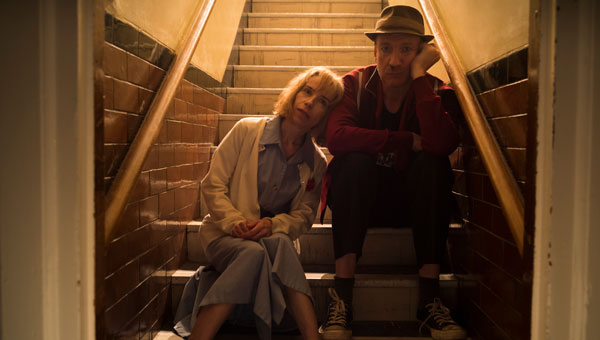Eternal Beauty Review

I first saw Craig Roberts on screen about ten years ago in Richard Ayoade’s directorial debut Submarine – a dry, quirky comedy with poignancy and depth that Roberts was perfectly suited to.
It’s no surprise that Eternal Beauty, Roberts’ follow-up to his directorial debut Just Jim, feels similar in tone and subtlety to Submarine, if less comedic.
Eternal Beauty tells the story of Jane (Sally Hawkins in the present, Morfydd Clark in the past), a woman who suffers a mental breakdown after she is stood up on her wedding day. Jane is diagnosed as a paranoid schizophrenic and her family do not provide much in the way of support and understanding, with the possible exception of her sister Alice. Jane’s mother (a fantastic Penelope Wilton) is particularly harsh on her daughter.
The film mainly acts as a feature-length insight into living with mental illness as we follow Jane and her daily interactions with her parents, siblings and doctor, both on and off her medication. For the sake of narrative structure, there is also a romantic thread involving David Thewlis as a singer-songwriter who hasn’t quite made it yet.
It was not the film the trailer promised, which suggested more of an Eagle Vs Shark offbeat romcom; however once I adjusted my expectations in the first five minutes, it unfolded as a moving and unvarnished tale of loneliness, depression and heartache.
Hawkins is great in the main role, handling both the tough realities of her character as well as the awkward humour her social situations often prompt. You find yourself laughing to break the tension if nothing else.
Equally impressive is the supporting cast of recognisable faces, like Alice Lowe, Billie Piper and Robert Pugh, who all say a lot by not saying much; that this style works so effectively is a testament to Roberts’ dual talents as writer and director here.
The deadpan nature of the performances is counterbalanced by Michael Price’s swelling score and the inventive, dreamlike sequences conjured up by Roberts throughout the film. There is one sequence in particular, involving a moving wall in Jane’s flat, which evokes Michel Gondry in its use of practical effects.
One challenge which the film may encounter in finding an audience is its bleakness. It bravely doesn’t aim to round up everything with a neat, happy bow which admirably reflects the true, open-ended nature of mental illness; but with everything that’s happening in the real world today I personally long for some escapism.
This is a more a lament for the times we live in rather than a criticism of the film itself, so if you’re feeling strong and up to it, this is a rewarding watch with compelling performances.
Conor Brennan